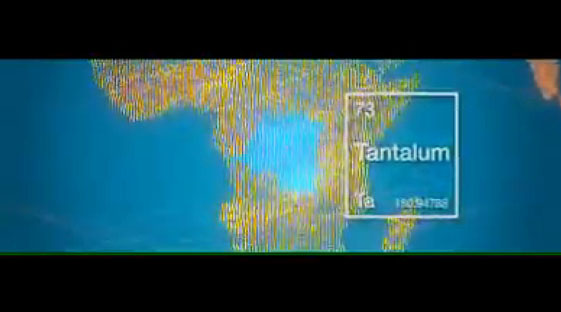
In a new video, Intel took a significant step beyond the commitments of other electronics companies by publicly stating its intent “to manufacture the world’s first verified, conflict-free microprocessor by 2013.” No other company from the electronics, jewelry, or automotive sectors have made a similar commitment, so this goal represents a serious step forward.
The video, released by Chief Operating Officer Brian Krzanich, is part of Intel’s Corporate Social Responsibility initiative, which is “intended to inspire employees and set a challenging target” for the company. “At the beginning of the project we considered banning all material from the country, but we quickly came to the conclusion that that wasn’t the right thing to do,” said Intel’s Jerry Meyers, in the video:
What we found when we were over there [in Congo] is that there’s really only two major industries: its farming, and its mining. So, if we were to ban materials from that country, we would be depriving the local people of one of two of their main sources of livelihood, and we wanted to avoid that at all cost. But we did want to ensure that we had a good conflict free source of all minerals.
Instead of pulling its business out of Congo, Intel has decided to begin a ‘bagging and tagging’ system, in which bags of minerals from certified conflict-free mines are tagged, making it easy for companies to trace them and assure that the minerals they receive are clean. Of course, this system is not yet perfect. Meyers explains how, during Intel’s pilot run of the program, they discovered that someone had acquired a number of tags and was selling them illicitly, undermining their entire purpose and function. However, Intel was able to detect and halt this activity within a week.
By taking such determined steps towards creating a conflict-free product, Intel has essentially thwarted other companies who claim that implementing such traceability measures for their products is not feasible. Although manufacturing Intel’s microprocessors mainly requires tracing and auditing tantalum, and not the three other conflict minerals (tin, tungsten and gold), their projected timeframe for releasing a conflict-free product by next year clearly indicates the possibility for other companies to make similar strides with any or all of the minerals in question.
As we eagerly await the SEC ruling on the Dodd Frank Act section 1502 for conflict minerals, it is encouraging to see that some companies are already taking measures into their own hands. Such initiatives are not only admirable from a human rights and responsibility stand point, they are also incredibly valuable for advocacy groups like Enough to be able to point to as examples of how such measures can be realistically implemented. If more companies like Intel are willing to start proactively engaging with these types of issues, it will eventually set a level of standards which more companies will feel compelled to follow.
As the narrator of the video poignantly pointed out: “As a global corporation, we are keenly aware that small footsteps in one part of the world can leave giant footprints elsewhere on the planet.”
Photo: Image from Intel video

